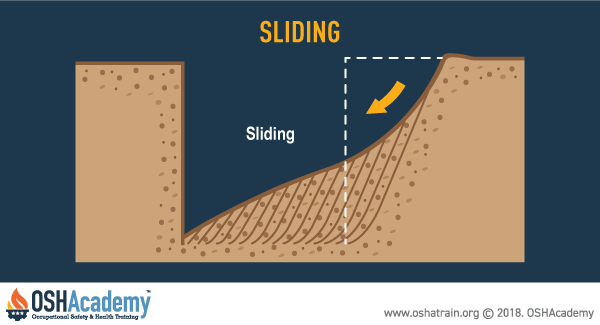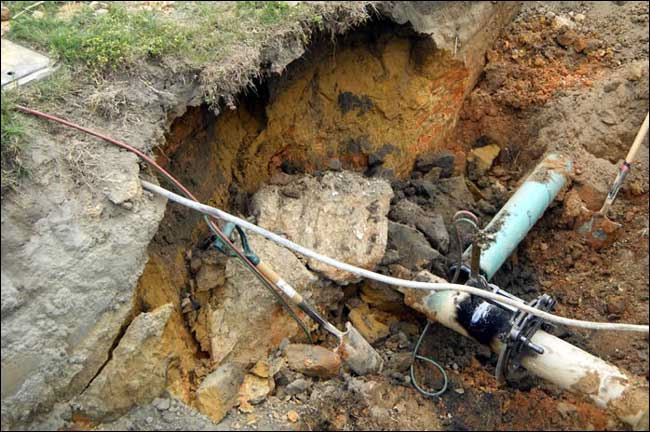Sliding Problems
Sliding and other modes of failure can occur in soils that are not densely compacted.
- If a trench that is made close to a previously dug trench is very unstable.
- If uncompacted soil is discovered, the normal safe slope for dense soil will not be enough to prevent sliding. Bracing or more gradual sloping may be necessary.
- If tension cracks are observed in rocky types of soil, sliding has already occurred. These cracks should signal that a more gradual slope for excavation is needed because the rocky soil is very susceptible to slides and other types of failure.
- If, after prolonged exposure to the elements, the moisture content in stable soil may increase due to rainfall, a broken water line, or other reasons. The extra soil moisture tends to speed up sliding soil failures.
The Three Common Factors
Soil failures that cause sliding can occur for any number of reasons. However, three of the most common factors that increase the chances of soil failure from sliding are:
- excessive vibration,
- surface encumbrances, and
- wet soil.
Knowledge Check Choose the best answer for the question.
3-2. What indicates sliding has already occurred?
You forgot to answer the question!


